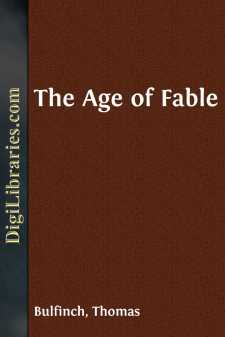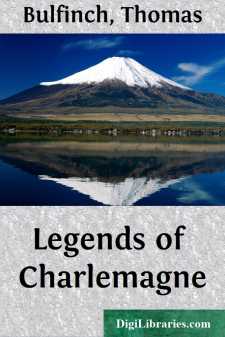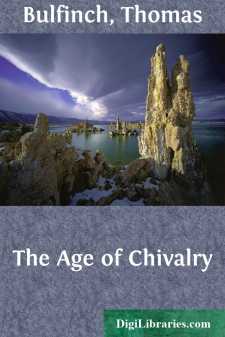Categories
- Antiques & Collectibles 13
- Architecture 36
- Art 48
- Bibles 22
- Biography & Autobiography 813
- Body, Mind & Spirit 142
- Business & Economics 28
- Children's Books 16
- Children's Fiction 13
- Computers 4
- Cooking 94
- Crafts & Hobbies 4
- Drama 346
- Education 46
- Family & Relationships 57
- Fiction 11829
- Games 19
- Gardening 17
- Health & Fitness 34
- History 1377
- House & Home 1
- Humor 147
- Juvenile Fiction 1873
- Juvenile Nonfiction 202
- Language Arts & Disciplines 88
- Law 16
- Literary Collections 686
- Literary Criticism 179
- Mathematics 13
- Medical 41
- Music 40
- Nature 179
- Non-Classifiable 1768
- Performing Arts 7
- Periodicals 1453
- Philosophy 64
- Photography 2
- Poetry 896
- Political Science 203
- Psychology 42
- Reference 154
- Religion 513
- Science 126
- Self-Help 84
- Social Science 81
- Sports & Recreation 34
- Study Aids 3
- Technology & Engineering 59
- Transportation 23
- Travel 463
- True Crime 29
The Age of Fable
by: Thomas Bulfinch
Categories:
Description:
Excerpt
If no other knowledge deserves to be called useful but that which helps to enlarge our possessions or to raise our station in society, then Mythology has no claim to the appellation. But if that which tends to make us happier and better can be called useful, then we claim that epithet for our subject. For Mythology is the handmaid of literature; and literature is one of the best allies of virtue and promoters of happiness.
Without a knowledge of mythology much of the elegant literature of our own language cannot be understood and appreciated. When Byron calls Rome "the Niobe of nations," or says of Venice, "She looks a Sea-Cybele fresh from ocean," he calls up to the mind of one familiar with our subject, illustrations more vivid and striking than the pencil could furnish, but which are lost to the reader ignorant of mythology. Milton abounds in similar allusions. The short poem "Comus" contains more than thirty such, and the ode "On the Morning of the Nativity" half as many. Through "Paradise Lost" they are scattered profusely. This is one reason why we often hear persons by no means illiterate say that they cannot enjoy Milton. But were these persons to add to their more solid acquirements the easy learning of this little volume, much of the poetry of Milton which has appeared to them "harsh and crabbed" would be found "musical as is Apollo's lute." Our citations, taken from more than twenty-five poets, from Spenser to Longfellow, will show how general has been the practice of borrowing illustrations from mythology.
The prose writers also avail themselves of the same source of elegant and suggestive illustration. One can hardly take up a number of the "Edinburgh" or "Quarterly Review" without meeting with instances. In Macaulay's article on Milton there are twenty such.
But how is mythology to be taught to one who does not learn it through the medium of the languages of Greece and Rome? To devote study to a species of learning which relates wholly to false marvels and obsolete faiths is not to be expected of the general reader in a practical age like this. The time even of the young is claimed by so many sciences of facts and things that little can be spared for set treatises on a science of mere fancy.
But may not the requisite knowledge of the subject be acquired by reading the ancient poets in translations? We reply, the field is too extensive for a preparatory course; and these very translations require some previous knowledge of the subject to make them intelligible. Let any one who doubts it read the first page of the "Aeneid," and see what he can make of "the hatred of Juno," the "decree of the Parcae," the "judgment of Paris," and the "honors of Ganymede," without this knowledge.
Shall we be told that answers to such queries may be found in notes, or by a reference to the Classical Dictionary? We reply, the interruption of one's reading by either process is so annoying that most readers prefer to let an allusion pass unapprehended rather than submit to it. Moreover, such sources give us only the dry facts without any of the charm of the original narrative; and what is a poetical myth when stripped of its poetry? The story of Ceyx and Halcyone, which fills a chapter in our book, occupies but eight lines in the best (Smith's) Classical Dictionary; and so of others.
Our work is an attempt to solve this problem, by telling the stories of mythology in such a manner as to make them a source of amusement....




